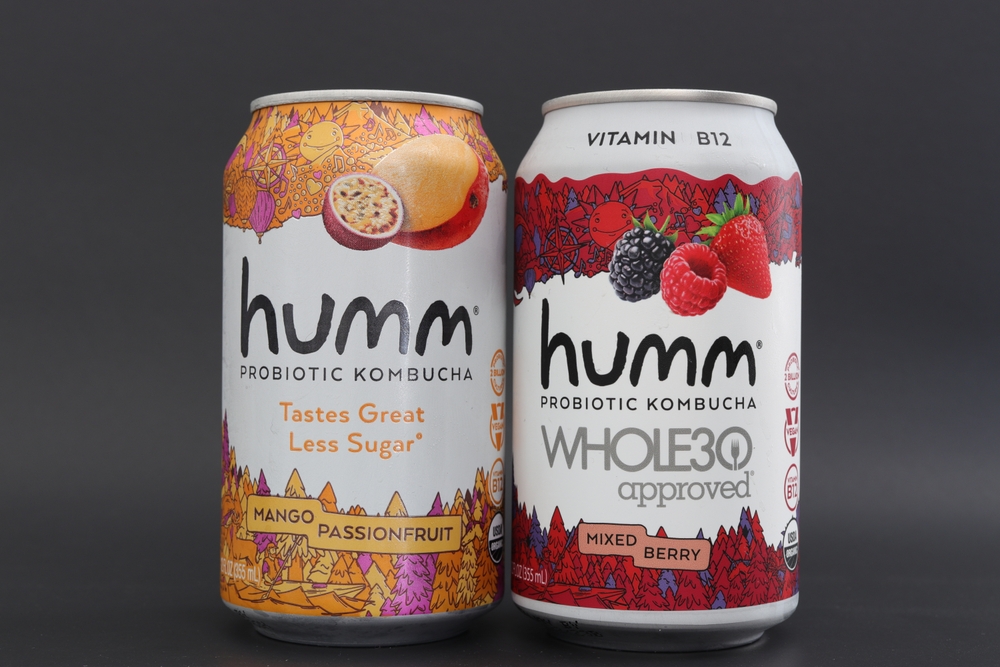As long as it’s brewed correctly, kombucha is keto-friendly. Despite adding a cup of sugar per gallon of tea, this tea is low in sugar, carbohydrates, and calories. It is great for your gut health and an excellent option for those following the ketogenic diet.
Table of Contents
How Many Carbs Are in Kombucha?
Most unflavored kombuchas have 6 to 10 grams of carbs per 8-oz serving. Unflavored homemade kombucha has a similar carb count. However, flavored kombucha tends to have more, depending on the added ingredients.
Which Kombucha Brands Offer Keto-Friendly Kombucha?
Some keto-friendly kombucha brands include:
- Equinox
- Remedy
- Kombucha Town
- Humm
These brands all offer keto-friendly options, meaning you won’t have to worry about breaking your diet or consuming an excessive amount of sugar when drinking a serving. Kombucha bottles that are not labeled as low or zero-sugar usually have a higher carb count. As such, make it a habit to review the nutrition label before buying a fermented drink.

Does Kombucha Burn Belly Fat?
Kombucha is filled with probiotics and live cultures that improve the quality of your gut microflora. It makes it more efficient in the digestion of food, protecting your intestinal lining from harmful pathogens and boosting your metabolism.
Kombucha also helps digestion and may make you feel fuller for longer. The ingredients found in black/green tea and live cultures increase the speed at which your body breaks down calories. Kombucha can not only help you achieve ketosis but may also help you burn belly fat.
While it is not marketed as a weight loss drink, it is a great alternative to sweet, sugary soft drinks. Drinking this fermented tea instead of a soda will save you unnecessary calories, carbs, and sugars.
How Is Kombucha Made?
Kombucha is made from three primary ingredients: a SCOBY (symbiotic culture of bacteria and yeast), sweetened black or green tea, and a starter tea. A SCOBY is a pellicle of bacteria and yeast that ferments the tea. Starter tea is a fermented liquid that contains beneficial bacteria and yeast. Sweetened green or black tea is, well, sweet tea.
To make kombucha, these three ingredients are combined in a vessel and left at room temperature. During this crucial fermenting period, the bacteria slowly eat the sugars and convert them into beneficial acids and enzymes. The longer the brew time, the less sugar remains in the kombucha.

The sugar content of an 8-oz serving of kombucha is typically between 2 and 6 grams at the end of the first brewing process.
A second fermentation is done for flavoring and to carbonate the kombucha. Some brewers add sugar or fruit during this fermentation process, which might not make it suitable for the keto diet.
This 14-day process creates a drink that has been shown to lower blood glucose levels, is full of healthy bacteria and antioxidants, and tastes delicious.
Can You Make Keto-Friendly Kombucha at Home?
Yes, you can make your own kombucha at home. You’ll need a fermenting vessel, a SCOBY, starter tea, sweet tea, and a large glass container.
Remember that keto-followers should ferment their kombucha for as long as possible to ensure there are fewer grams of sugar in the fermented tea. A good, keto-friendly kombucha will acquire an acidic and vinegary taste. You may want to dilute it to make it less tart.
Can You Make Homemade Kombucha Without Sugar?
Each brewer has their own recipe, but you can not make kombucha without cane sugar. Sweetener alternatives, like stevia or monkfruit, will not provide the right nutrients for the SCOBY, meaning your tea will not ferment.
Instead of lessening the amount of sugar, ferment the tea for a longer time, allowing the SCOBY to consume more of the sugar.
Are There Any Side Effects of Drinking Kombucha?
There are many health benefits of kombucha tea. It has been known to kill bacteria, improve cholesterol, and reduce the risk of heart disease and prostate cancer.
As with many food items, too much of it can cause undesirable side effects, such as:
- Excessive bloating
- Headaches
- Teeth sensitivity
- Exposure to potential allergens
- Excess calorie consumption
Fortunately, instances of these symptoms are rare, mild, or preventable. First-time drinkers should stick to a modest intake at first and closely observe their body’s response.

